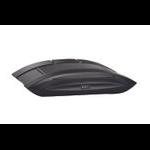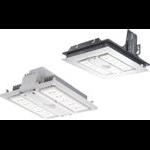Breadcrumb Navigation
- Applications
- Case Studies
- Burger King/Group 2029 Inc.
Burger King/Group 2029 Inc.
By installing energy-efficient Cree® LED lighting, franchisee Maruti Seth met Burger King’s challenge to build an environmentally-friendly restaurant without compromising operational standards.
- Opportunity
- Solution
- Benefit
The average American stops at a quick-service restaurant 150 times a year. With this many impressions, fast-food restaurants have great opportunity to create positive environmental impacts as they enter the green-building arena.
Recent efforts in corporate strategies and enterprising franchisees are sprouting new models on how to serve up sustainability. As the number-two hamburger chain with over 12,000 restaurants around the world in 73 different countries, Burger King® is looking to lead the sustainable building charge among national and global fast food chains.
Burger King® is continually initiating environmentally positive changes without compromising operational standards. The company’s employees and leadership are engaged and committed to developing ways to deliver consistent policies and practices across all of their operations globally. Since 90 percent of Burger King’s fast-food restaurants are owned by franchisees, new franchisees are challenged with implementing efforts towards a green vision by creating an exceptional and memorable dining environment that also incorporates a smaller carbon footprint, reduced utility costs and increased labor efficiencies.
As Burger King® franchisee Maruti Seth began making plans to open his ninth franchise, he wanted to find a way to reduce utility costs. So when Group 2029 Inc., the private company Seth founded in 2005, set out to construct the new restaurant in the central Illinois town of Savoy, it ordered energy-efficient Cree® LED lighting instead of traditional metal halide fixtures to illuminate the parking lot, drive-thru bay, walkways and more.






